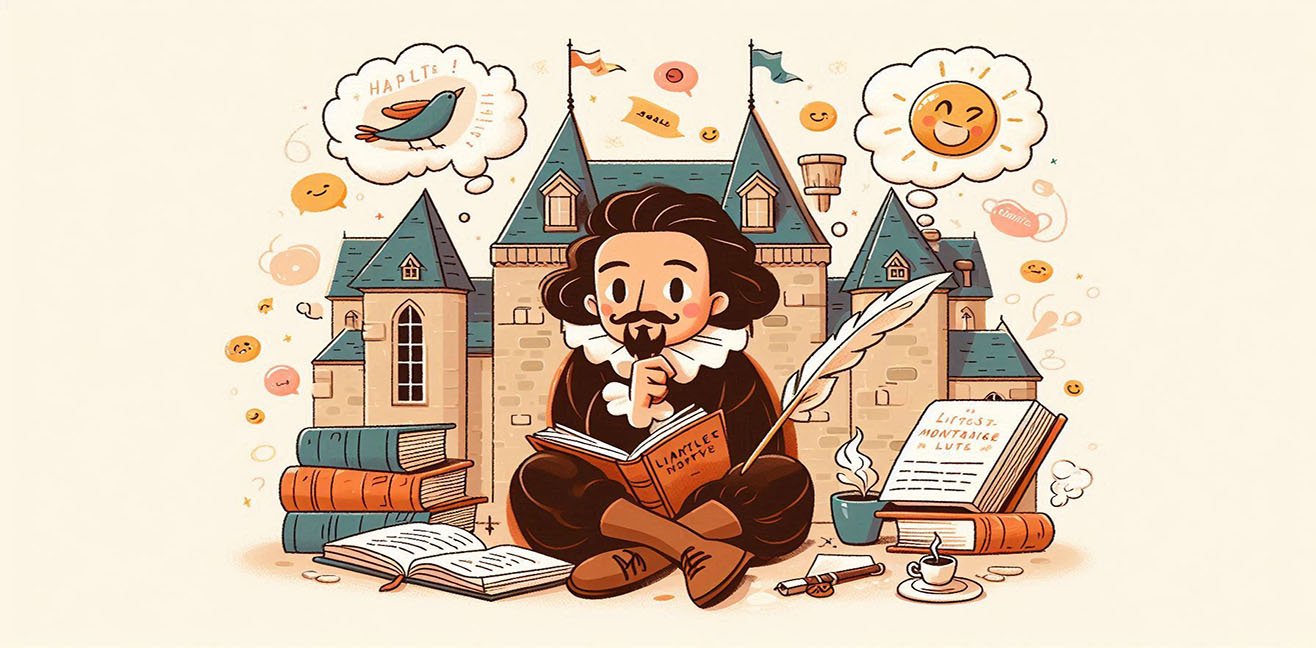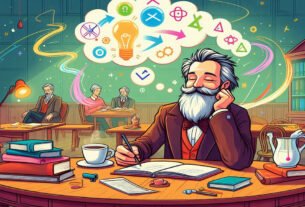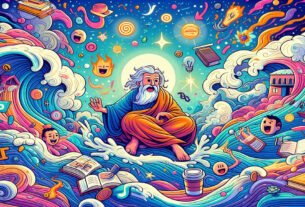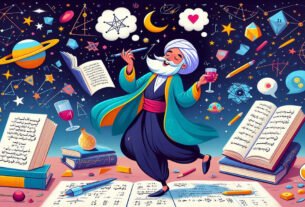Michel de Montaigne went down in history as a philosopher, essayist, and explorer of the human soul, born in 16th-century France. Born in 1553 in Bordeaux, Montaigne came from a noble but highly curious family. He received a classical education in Latin as a child, studied law, and served in the Bordeaux Parliament, but the chaos of politics weighed heavily on his spirit. Montaigne chose his pen and mind over the turbulence of the outside world. This inner journey led to the creation of his work Essais (Essays).
The Essays, as the name suggests, are “attempts”; but they are not experiments in the scientific sense. They are Montaigne’s reflections, observations, and dialogues with himself. He critiques humanity while embracing it; he makes us laugh while making us think; he teaches while entertaining.
Knowing Oneself: The Heart of Philosophy 💖
At the center of Montaigne’s philosophy lies “knowing oneself.” In his view, a person must understand their own soul before they can understand the world:
“I have studied myself, and that is all my wisdom.”
But Montaigne is far from a solemn guru; he critiques himself, acknowledges his flaws, and sometimes presents them to the reader with a playful irony. For example, he reflects on aging:
“Aging is nature’s joke upon us; yet accepting this joke is wise.” 😏
Here, there is humor, philosophy, and a reconciliation with life’s realities—the very magic of Montaigne.
Life Examples: Thought and Experience Hand in Hand
Montaigne studied law at a young age and served in the Bordeaux Parliament, but palace life and politics were too heavy for him. At 38, he withdrew to Château de Montaigne and spent the rest of his life with his books, thoughts, and reflections. This period gave birth to the Essays.
Montaigne did not limit himself to reading; he studied the people of his time and ancient philosophers, transforming his observations into philosophical reflections. On solitude, he writes:
“Solitude is the most precious moment in which the soul meets itself; there, one both loses and finds oneself.”
His observations are so vivid that reading him feels like sitting in the same room, in the same library, with Montaigne himself. His works contain both the mundane details of life and profound reflections on the human soul.
Philosophical Perspective: The Middle Path and Tolerance
Montaigne’s philosophy is strikingly modern. He believed in moderation, self-awareness, tolerance, and acceptance of human weaknesses. Courage is not blind recklessness but acting despite fear.
For Montaigne, love is not merely emotional excitement; it is a discovery of oneself and the other:
“The lover discovers both his own heart and that of his beloved.”
Even when discussing love, he never loses humor and sincerity:
“My heart often outpaces my reason, but that is the joy of being human.”
Golden Quotations from the Essays ✨
- “Do not believe too much in anything; man is prone to deceive himself.”
- “I forgive my friend’s faults because I know my own.”
- “Reading is the wings of thought; thinking makes man free.”
- “There is no secret we do not tell ourselves; a secret is what we do not tell others.”
- “Courage is knowing fear and yet acting; blind courage is nothing but folly.”
- “Aging is nature’s joke upon us; yet accepting this joke is wise.”
Montaigne’s writing often flows in a poetic tone; reading him can feel like listening to a miniature poem. Each sentence carries rhythm, harmony, and deep emotion.
Humor, Critique, and Instruction
One of Montaigne’s most remarkable traits is that he never abandoned humor when addressing life and humanity. He critiques human weaknesses and societal masks so delicately that the reader both laughs and reflects.
For example, on culinary culture, he writes:
“Man takes his food so seriously that he often forgets himself and others; yet food is also a little philosophy of life.” 😄
Life Lessons from Montaigne 💡
- Know yourself and accept your flaws; don’t forget to laugh at yourself.
- Make peace with yourself; even in solitude, your soul can meet you.
- Be tolerant of others; everyone is full of mistakes.
- Never forget humor; life is serious enough, laughter is essential!
- Thinking liberates; reading is the wings of thought.




